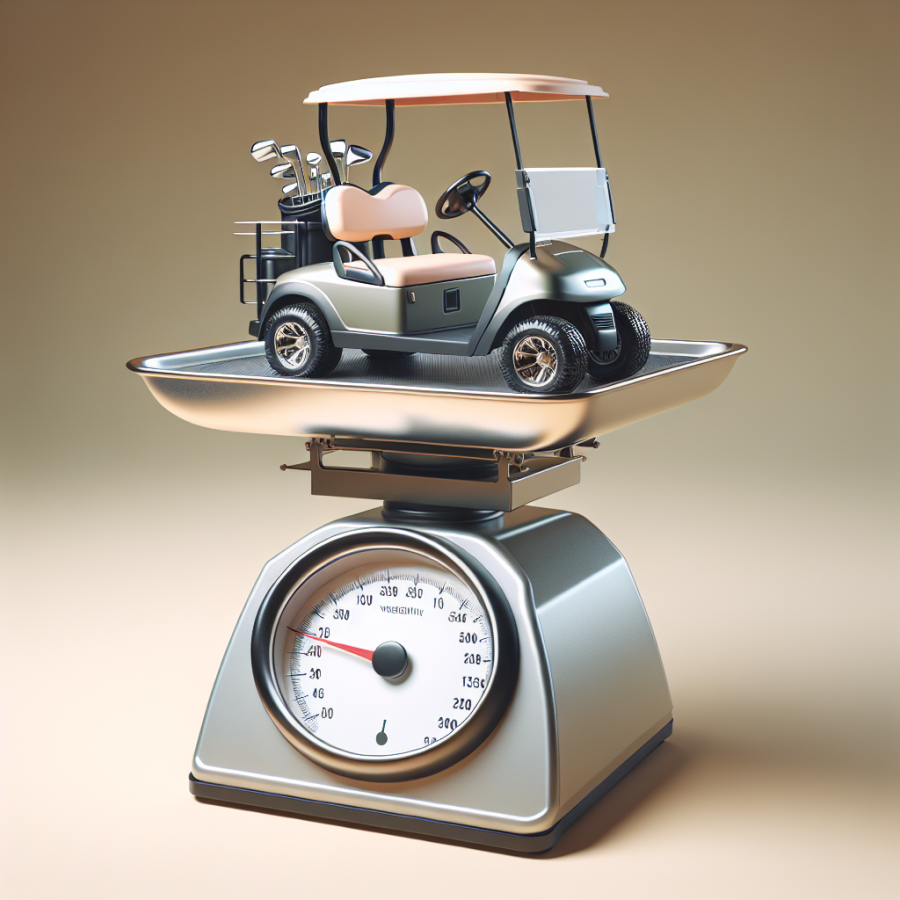Influential Factors: How Various Components Contribute to a Golf Cart's Weight
There are various components contributing to the overall weight of a golf cart, and understanding these influential factors can give you a deeper understanding of its functioning and performance.
One of the most significant components contributing to a golf cart's weight is the battery. Notably, electric golf carts tend to be heavier than their gas counterparts primarily because of the lithium or lead-acid batteries they carry. A single lead-acid battery can weigh as much as 60 pounds. Multiply this by the six or eight batteries commonly found in an electric golf cart, and you'll find that the batteries alone can account for up to one-third of the cart's total weight. Lithium batteries, while a lot lighter, weigh around 30 pounds each and also contribute significantly to the overall weight.
The frame of the golf cart is another important component to consider. Most golf carts use steel frames, known for their strength and durability. However, steel is also quite heavy. Aluminum frames are a lighter alternative, but they are typically less robust than steel and are more susceptible to damage.
The engine in a gas-powered golf cart also adds substantial weight. The engine's weight will vary depending on its size and the materials used to manufacture it. Gas-powered golf carts typically have engines that range in weight from 110 to 120 pounds.
The seats and canopy (or roof) significantly contribute to the golf cart's weight as well. Depending on the materials used in the construction of these parts, they can add anywhere from 50 to 100 pounds to the weight of the cart.
Wheels and tires also play a role in determining the weight of a golf cart. Bigger, wider, and more durable tires will naturally weigh more.
Lastly, additional accessories such as windshields, rain covers, coolers, and sand buckets can have a significant impact on the weight of the golf cart. These added features can lead to a surprising increase in the vehicle’s overall weight.
An understanding of these influential factors can help you better comprehend the weight of golf carts and can also guide you in making conscious decisions about optimizing performance and handling, choosing between gas or electric power, and deciding on necessary versus unnecessary extras.
Read also:
Navigating the Competitive Challenges in Today's Business Landscape
The Heaviness Factor: Understanding the Different Weights of Golf Carts
When engaging with the sport of golf or engaging in tasks requiring short-distance mobility, golf carts are both practical and convenient modes of transportation. However, when it comes to buying or replacing one, the weight is a crucial aspect to consider. Owing to a vast array of designs, sizes, and special features, the weights of golf carts differ significantly. This article aims to enlighten you about how different factors affect the weight of these vehicles.
Starting with the basics, the broad categorization of golf carts into two types, i.e., gas-powered and electric, greatly determines their weight. Gas-powered carts, which typically use a 4-stroke engine, are significantly heavier than their electric counterparts. They weigh between 900 to 1000 pounds due to the additional weight of the gas engine and fuel. On the other hand, electric golf carts, powered by rechargeable batteries, have an average weight ranging from 500 to 800 pounds. Their weight is mostly attributable to the batteries, which alone can contribute up to 300 pounds.
Next, the constituting materials also play a significant role in the overall weight. The chassis, body, and other structural components matter. Traditional golf carts made of steel or aluminum frames are considerably heavier compared to those constructed from lightweight materials like plastic or carbon fiber. Steel and aluminum have their own advantages in terms of strength and durability, but for users looking for a lighter vehicle, materials like plastic or carbon fiber are more suitable .
Evidently, the number of seats in a cart also impacts weight. A standard two-seater golf cart will naturally weigh less than a six-seater. Usually, each additional seat adds approximately 100 to 150 pounds to the overall weight. Customizations like cargo beds, extended roofs or canopies, and fancy accessories are also considerable factors. These additional frills can add a significant amount to the total weight.
There might be varying standards when you compare different brands and models too. Each manufacturer has unique methods of construction and design styles which can affect the weight. Premium golf cart brands could feature luxury additions or high-end materials, giving their models a heavier weight.
The type of tires installed on a golf cart also impacts the weight. While standard golf cart tires won't add substantial weight, the option for off-road or larger tires will increase the gross weight.




